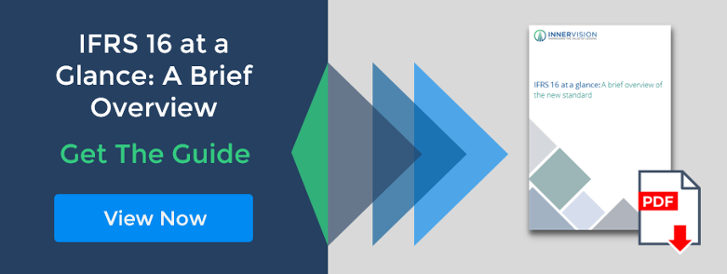How To Get Your Accounting Team To Understand The Importance Of IFRS 16
Updated 18th May 2021 | 5 min read Published 19th September 2017

Some things are too distant to become a matter of importance until they are thrust upon you.
Like a reluctant GCSE student realising that their maths’ exam is only a few days away and they have no idea what the ‘nth degree’ even means, too many finance and accounts departments are adopting the ostrich’s view to the imminence and importance of IFRS 16.
“It’s still too far away” has been and remains the cry of the perpetually motivated by pressing deadlines. What’s right in front of you is always going to be more pressing than something which doesn’t come into force until 1st January 2019.
But to hold this attitude in regard to IFRS 16 risks leaving your business stuck behind the eight ball and having to forsake all else in order to fully achieve compliance with the new lease accounting standards.
Communicating the following messages is the key to making sure your whole team understands why IFRS 16 is so important:
- Explain what’s affected by IFRS 16
- Explain what’s changing
- Highlight why collecting all the required data will take time (and why it needs to happen sooner rather than later)
- Finally explain the impact of inaction now!
Explain What's Affected By IFRS 16
Explaining what’s impacted by the changes is the first step to getting your accounting team to understand the importance of IFRS 16. It’s impossible to underestimate the impact the changes to lease accounting standards will have on financial metrics for your business.
Besides all lease agreements having to be shown on balance sheet (and the consequential impact on your investors and your financial presentation), there will be a range of other reports and figures affected. Turnover, operating cash flow, net income, operating profit and interest cover are just some figures to be impacted by the implementation of IFRS 16.
Read more about the impact on all of the above plus EBIT, EBITA and more, in our previous blog post on which financial metrics and KPIs are impacted by IFRS 16.
Most crucial, IFRS 16’s impact on your financial reporting is sure to impact financial covenants, credit rating, borrowing costs and your stakeholders’ perception of your business – performance and prospects.
This will have an effect on all businesses who lease assets in order to function, regardless of size and industry. From high street retailers to airlines, if your business relies on lease and service agreements in order to function, your financial state of play is set to change.
Explaining What's Changing Will Help Communicate The Importance Too
Besides changing accounting standards to make sure that all kinds of lease agreements are shown on balance sheet, there’s an equally ground-shifting change as part of IFRS 16. The definition of what constitutes a lease agreement is being altered.
Under IFRS 16, a lease will now exist when a customer controls the right to use an identified item, which is when the customer:
- has exclusive use of the item for a period of time; and
- can decide how to use it.
This means that your business will have to assess all service and lease agreements to ascertain what exactly will constitute a lease as of IFRS 16 coming into force. Some service agreements will become leases and some leases will become service agreements.
How many agreements change categorisation will alter the amount of impact that complying with IFRS 16 will have on your business.
It Will Take A Lot Of Time And Effort To Collect All Your Lease Related Documentation.
Gathering all of your lease agreement information can be time consuming and difficult to achieve. When was it last done within your business? But it’s going to be vital in order to properly execute IFRS 16 implementation.
There are a range of optional exceptions to IFRS 16 which your business may wish to action in order to mitigate or minimise the financial changes. There may be cost implications to including a lease agreement as an exemption which is more beneficial than taking the time and effort to include as part of compliance.
The wider spread that your documents and information are, for example across multiple office locations or held by different points of contact, the more difficult this task will be. If you are struggling to get your accounts team to understand how important this task is, how will other members of the company appreciate why they’re being asked for some obscure piece of paperwork?
And the fact that your lease agreements are probably held in paper format in myriad filing cabinets across international as well as regional locations is another stumbling block. Close management of your lease portfolio is going to be increasingly important once IFRS 16 comes into force.
Given the heightened impact on your financial reporting, your lease agreements will need to be optimised as much as possible to achieve the best possible cost effectiveness. Relying on outdated forms of data management and communication will detract from your ability to achieve this.
It’s advised that you invest in creating a digital system which allows a central access point for all lease related documents and agreements, as well as being able to quickly update the data bank following an update. To be able to digitise the documents, their crucial aspects (asset description, lease term, rental values, notice period, etc.) and their ownership will ease management going forward and mitigate the impact of IFRS 16 implementation.
Better yet, you should be able to get a comparison of your lease portfolio’s performance compared to what others with similar agreements are achieving.
You may or may not have budgeted the resource and expense of adopting and implementing the leasing standard. There are programmes such as Innervision’s LOIS which help to achieve this, but you may first need some supporting documents which will help to communicate the importance of IFRS 16 to your team.
We have put together an introductory document for you to download and share with your team so that they can get a sense of scale of IFRS 16. This will drive home the fact that there’s a lot of work to be done and the deadline is a lot closer than people may realise.







